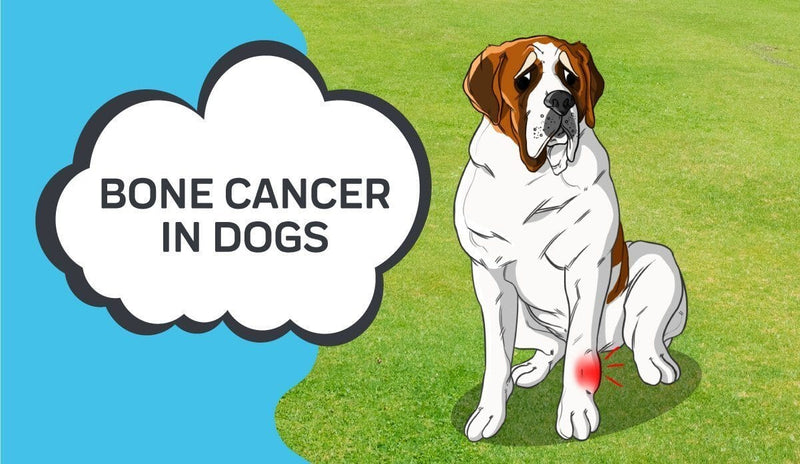The symptoms of liver cancer in dogs often go undetected until a large tumor has developed. Liver cancer is mostly asymptomatic because you can barely tell that the dog is exhibiting any unusual behavior. However, just because it's not apparent to the naked eye doesn't mean the dog isn't experiencing symptoms of canine liver cancer. This is one of many reasons that dogs should have routine wellness exams. During them, your vet can check for liver abnormalities that may indicate mast cell tumors or malignant tumors.
Cancer Found In The Liver Symptoms
As cancer moves from the early stages into the intermediate, and sometimes late stages, you'll be able to pick up on the signs of liver disease in your dog, which includes:
-
Changes in urination patterns
-
Constipation followed by diarrhea
-
Exuding more heat than normal
-
Weight loss
-
Dizziness and low energy
-
Extreme lethargy
-
Almost always sleeping
-
Excessive consumption of water
A Closer Look at Canine Liver Cancer Symptoms

Dogs with signs of liver cancer also experience frequent vomiting, coupled with seizures that come and go. In the later stages of canine cancer, some dogs have severe and life-threatening bleeding in their abdominal region.
Known as abdominal hemorrhaging, these bleeds stem from necrotic tumors, meaning the lymph nodes detected the presence of cancerous cells and worked to kill many of them, which is good but also detrimental to your dog's blood flood. If dead cancer cells become trapped in the bloodstream, the chance of hemorrhaging is increased. This is a prime example of why vets perform blood work on dogs that might have this disease.
How Liver Tumors Are Diagnosed in Dogs
There are multiple ways to go about diagnosing liver cancer in dogs. In the process of diagnosis of liver cancer in dogs, it's very likely that a variety of lab tests will be conducted to rule out other possible illnesses. From blood work to a urine sample test to ultrasounds to radiographs and hormone imbalance tests, there are many ways to diagnose if there is something other than cancer making your dog unwell.
Veterinarians often look for blood clotting and hemorrhaging. They'll look at the heart first before going through with a biopsy. Since surgical biopsies are a more intense way of looking at potentially cancerous tumors, vets will wait to perform surgical biopsies until they are sure a biopsy is necessary.

Once the vet has ruled out other possibilities and determines which type of liver cancer your dog has, a treatment plan can be compiled for your pet.
How to Treat Liver Cancer in Dogs
There are many treatments for cancer cells that have spread to the liver of your dog. The most common plan of action is the surgical removal of the tumor.
The treatment options for liver cancer in dogs are:
-
Palliative chemotherapy
-
Radiation therapy
-
Surgery
Type of Tumor in Dogs with Liver Cancer
There are four types of primary liver cancer for dogs. The specific form of primary liver cancer that a dog is diagnosed with depends on the kind of tumor growth in the dog's liver, if it affects the entire liver, causing liver enlargement, and on. These four kinds of spread to the liver cancer are:
-
Bile Duct Carcinoma
-
Hepatocellular Carcinoma
-
Mesenchymal Tumor Sarcoma
-
Neuroendocrine Tumor Sarcoma
Bile Duct Carcinoma
Also known as cholangiocarcinoma, this is a type of primary liver cancer in dogs that's more centralized in the bile ducts. The bile ducts of the liver move bile to the gallbladder, and eventually, the bile is delivered into the small intestine. This disrupts the natural processes of your dog's internal functioning, which can create a significant backup, resulting in painful complications.
Can become metastatic cancer, affecting nearby organs and lymph nodes.
Hepatocellular Carcinoma
This is the type of primary liver cancer that over fifty percent of dogs with cancer of the liver are diagnosed with. Hepatocellular carcinoma starts with cells known as hepatocytes, hence the name hepatocellular carcinoma.
Hepatocellular carcinoma doesn't often metastasis. Hepatocellular carcinoma HCC tumors are also not malignant. In other words, the tumors of this type of cancer do not run the risk of spreading to other parts of the body.
Hepatocellular carcinoma HCC is one of many different types of cancer that can affect animals (not just humans). in rare cases, it can become a metastatic liver cancer, causing common cancers in other organs that can result in mast cell tumors, thyroid cancer, intestinal carcinoma, and pancreatic cancer in dogs.
While hepatocellular carcinoma in dogs can cause massive liver tumors, if a vet can successfully surgical remove the massive tumors, a dog is generally given a good prognosis.
Mesenchymal Tumor Sarcoma
The term mesenchymal refers to connective tissue in the central nervous system. Mesenchymal tumors stem from the cells that make up fibroblasts, blood vessels, muscles, and tissue in the central nervous system.
Neuroendocrine Tumor Sarcoma
Growing from the abnormal growth of neuroendocrine cells, neuroendocrine tumors, as well as the related sarcoma that follows suit, can form just about anywhere. Neuroendocrine cells travel throughout the liver. Neuroendocrine tumors embed themselves into the nerves and neurons within the liver.
Facts About Primary Liver Cancer
-
There are several ways your veterinarian can diagnose liver cancer, including running diagnostic imaging tests and checking for liver abnormalities.
-
And your vet above everyone is your best bet when treating your dog's tumor growth. They can run lab tests during routine wellness exams to check for signs of liver dysfunction and can quickly get your dog on a cancer treatment plan, giving them the best shot.
-
Metastatic cancers can also cause liver cancer in dogs. Metastatic cancer is any cancer that spreads to another site; they are not liver cancer. Common cancer found in dogs that can become metastatic cancer and metastasis to the liver include mammary carcinoma, transitional cell sarcoma, and pancreatic cancer.
-
A liver tumor, also known as a hepatic tumor, is an abnormal mass of tissue formed by rapidly dividing cells.
Can a Dog Survive with a Tumor in the Liver?
Dogs cannot survive with a malignant and cancerous tumor in their liver for very long. If left untreated a poor prognosis is often the result.
If the tumor is benign, then it is more of an unnecessary disruption than it is fatal, but malignant liver tumors are incredibly dangerous. If the tumor is not removed from the liver and treated appropriately by professionals, a dog will eventually pass away from the disease.
In some cases, malignant tumors can not be removed such as ones from metastasized cancer along with diffuse hepatocellular carcinoma tumors.
Is a Dog with Liver Failure in Pain?
Dogs with liver tumors are not in constant pain, but they are aware that something is causing them physical discomfort. It all starts with an overall feeling of uneasiness, or malaise, as the vet might refer to it. From there, a slow-moving onset of nausea as a result of the tumors will start affecting your dog's mood, and it will grow into a full-on vomiting spell.
With the inability to keep food down comes a significant drop in weight and little to no appetite, as well as abdominal pain stemming from the emptiness in your dog's stomach. Over time, your dog's body will begin showing subtle signs of jaundice, which worsens if the organ cannot fully bounce back or heal on its own.
When the liver starts failing due to the presence of tumors, it becomes dull, inflamed, and achy. From there, the tumors can intensify and cause backache as well. When medical intervention and professional care are added to the equation, dogs with liver cancers can receive relief from the pain that the disease naturally causes.
Sources:
Approved by:Dr. Ivana VukasinovicDoctor of Veterinary Medicine, University of Belgrade
 Ivana Vukasinovic grew up in Serbia and attended the University of Belgrade where she received a degree in Veterinary medicine in 2012 and later completed surgical residency working mostly with livestock. Her first year of practice was split between busy small animal practice and emergency clinic, and after two more years of treating many different species of animals, she opened her own veterinary pharmacy where an interest in canine and feline nutrition emerged with an accent on fighting animal obesity. In her free time, she acts as a foster parent for stray animals before their adoption, likes to read SF books, and making salted caramel cookies.
Ivana Vukasinovic grew up in Serbia and attended the University of Belgrade where she received a degree in Veterinary medicine in 2012 and later completed surgical residency working mostly with livestock. Her first year of practice was split between busy small animal practice and emergency clinic, and after two more years of treating many different species of animals, she opened her own veterinary pharmacy where an interest in canine and feline nutrition emerged with an accent on fighting animal obesity. In her free time, she acts as a foster parent for stray animals before their adoption, likes to read SF books, and making salted caramel cookies.
Thanks for stopping by!
P.S. We Love You!
Sincerely,
The Innovet Team
Please do not ask for emergency or specific medical questions about your pets in the comments. Innovet Pet Products is unable to provide you with specific medical advice or counseling. A detailed physical exam, patient history, and an established veterinarian are required to provide specific medical advice. If you are worried that your pet requires emergency attention or if you have specific medical questions related to your pet’s current or chronic health conditions, please contact or visit your local/preferred veterinarian, an animal-specific poison control hotline, or your local emergency veterinary care center.
Please share your experiences and stories, your opinions and feedback about this blog, or what you've learned that you'd like to share with others.
Best Selling













 CBD Oil for Dogs
CBD Oil for Dogs Advanced Mobility Support Chews for Dogs
Advanced Mobility Support Chews for Dogs All Natural Oatmeal & Honey Shampoo + Conditioner for Dogs
All Natural Oatmeal & Honey Shampoo + Conditioner for Dogs CBD Dog Treats
CBD Dog Treats




